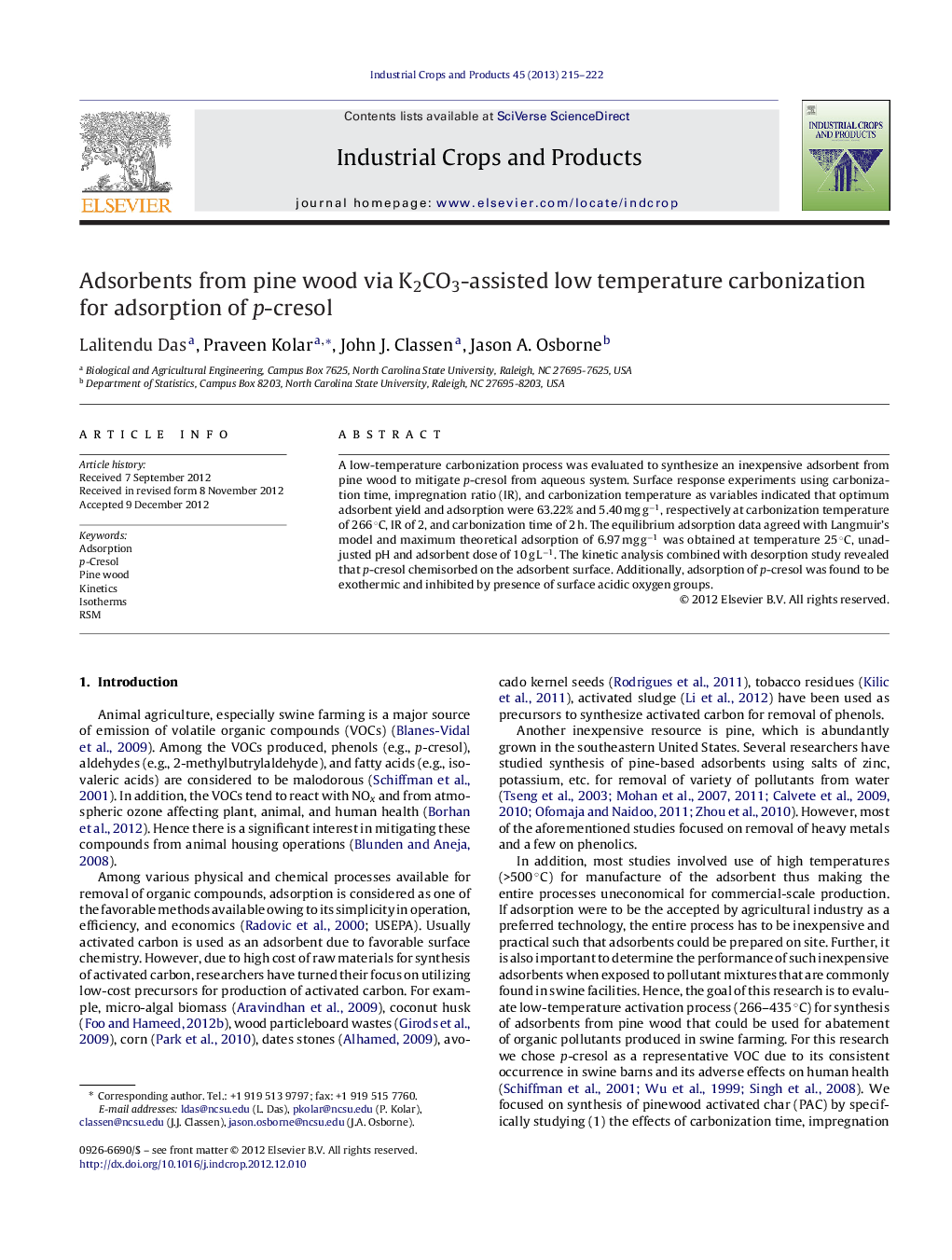| Article ID | Journal | Published Year | Pages | File Type |
|---|---|---|---|---|
| 4514039 | Industrial Crops and Products | 2013 | 8 Pages |
A low-temperature carbonization process was evaluated to synthesize an inexpensive adsorbent from pine wood to mitigate p-cresol from aqueous system. Surface response experiments using carbonization time, impregnation ratio (IR), and carbonization temperature as variables indicated that optimum adsorbent yield and adsorption were 63.22% and 5.40 mg g−1, respectively at carbonization temperature of 266 °C, IR of 2, and carbonization time of 2 h. The equilibrium adsorption data agreed with Langmuir's model and maximum theoretical adsorption of 6.97 mg g−1 was obtained at temperature 25 °C, unadjusted pH and adsorbent dose of 10 g L−1. The kinetic analysis combined with desorption study revealed that p-cresol chemisorbed on the adsorbent surface. Additionally, adsorption of p-cresol was found to be exothermic and inhibited by presence of surface acidic oxygen groups.
► Low-cost absorbent from pinewood. ► Effective in mitigation of p-cresol. ► Adsorption was exothermic and proceeded mainly via chemisorption.
